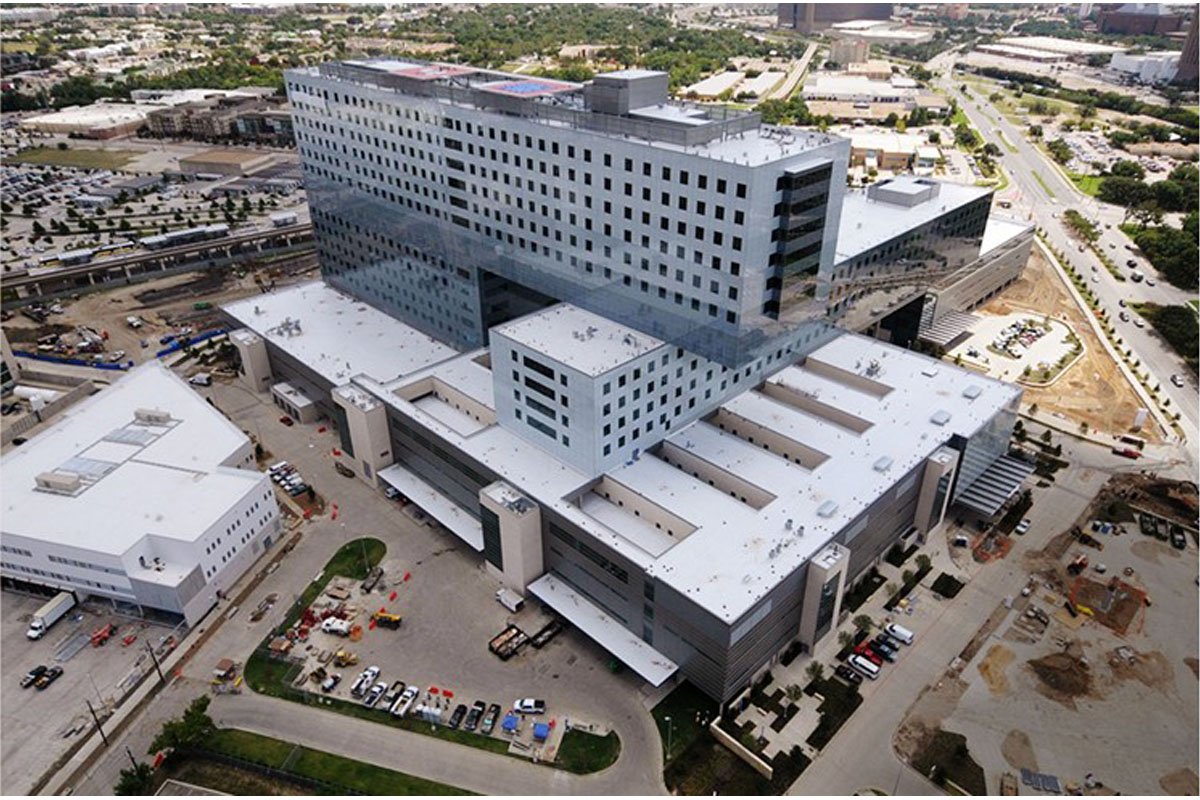In the final weeks of the Trump administration, the federal government granted Texas a ten-year extension to the waiver funded uncompensated care for hospitals. The funds brought a sigh of relief from hospital systems. Still, much of uncompensated care is a symptom of Texas having the most uninsured people and the highest rate of uninsured residents in the country.
On Jan. 15, HHSC and the Centers for Medicare and Medicaid Services (CMS) continued Texas’ Medicaid 1115 Demonstration Waiver for the next ten years, securing $11 billion in supplemental or directed Medicaid payments safety-net funding through 2030. Texas is one of 12 states yet to adopt Medicaid expansion, and the 1115 waiver was designed to fill the gaps in funding that the health system provided to those who were uninsured and couldn’t afford to pay for their care, but the waiver was set to expire this year. The extension will provide funding for hospitals, physicians, rural health clinics, behavioral health providers, and others. Public health providers will receive $500 million each year to make up for charity care provided in the state.
We are delighted that there is an extension,” says DFW Hospital Council CEO Steve Love.”We commend and express appreciation to [executive commissioner of the Texas Health and Human Services Commission] Cecile Young. That goes without saying.”
Critics wonder if the eleventh-hour waiver extension was granted by the Trump administration to temper the passion for expanded healthcare coverage among the various healthcare system players.
But while the 1115 waiver will help health systems care for the uninsured, the waiver doesn’t address the problem’s root cause. Texas’ uninsured rate still leads the nation at nearly 18 percent, more than double the national average. Patients end up in the emergency room with costly medical issues rather than receiving preventative care that insurance generally covers, leading to higher costs and worse outcomes. “I’m really glad that the Center for Medicaid and Medicaid Services granted an extension. We’re talking about uninsured people getting their emergency care, which is very expensive to the state. I’m glad we have that backstop,” said Dallas-based state senator Nathan Johnson during a virtual town hall. “But there’s something that it doesn’t do. That extension is essentially getting what we had. And what we had was five million uninsured people. The extension deal doesn’t insure anyone. It doesn’t mean it’s a bad deal. It means it doesn’t solve the problem.”
Johnson is pushing for an expansion in coverage that is allowed through the Affordable Care Act. He is working on a bill that would enable adults who earn up to 138 percent of the federal poverty line ($17,609 per year for one person) to receive health insurance and give health insurance to one million Texans. There is evidence that such a move would save the state money, important during a legislative session dealing with pandemic-induced budget deficits. “It’s an economic problem because those that’s lost work hours; that’s lost productivity,” Johnson said. “That’s income. That’s businesses having to stop and start hiring and firing to get new employees. That’s rising health insurance costs and people going to the emergency room for their care instead of receiving primary care.”
But Medicaid expansion is such a politically-charged issue at the moment that it is unlikely to happen in the conservative legislature. Even conservative neighbor Arkansas has found a way to do so. That state uses Medicaid expansion funds to subsidize premiums for those to purchase health insurance on the private marketplace, rather than giving them access to Medicaid itself.
But even if coverage is expanded, it will probably only eliminate 1-2 million of the five million who remain uninsured. It will take a bipartisan effort and buy-in from health systems, insurers, employers, and physicians. “We still have a lot of work to do,” Love says. “But this is a good starting point. We’ve got to roll up our sleeves, work together and see what we can do. If we can deal with chronic illness, and if we can really put the focus way upstream on prevention and wellness, it’s going to save us dollars in the long run.”






